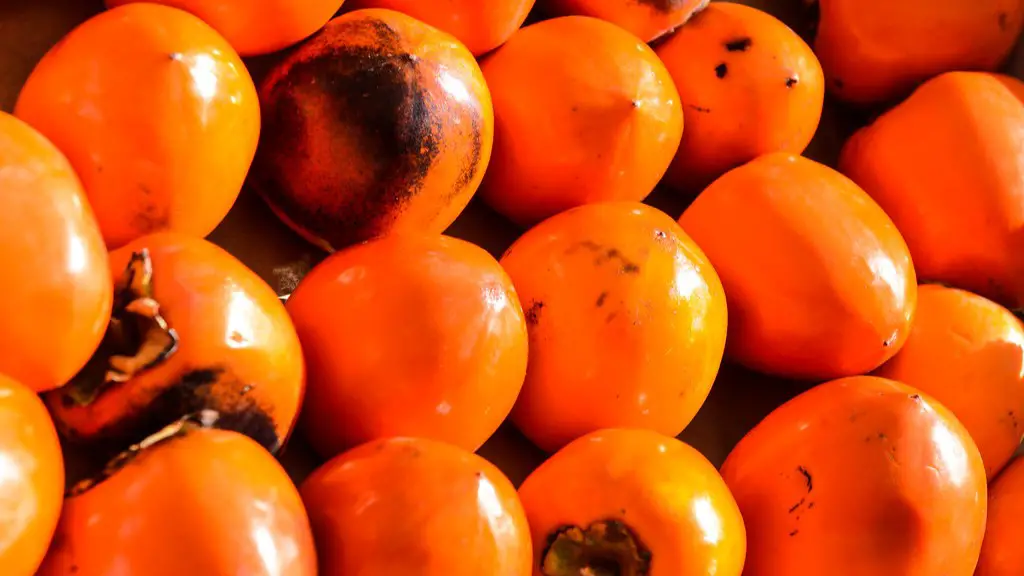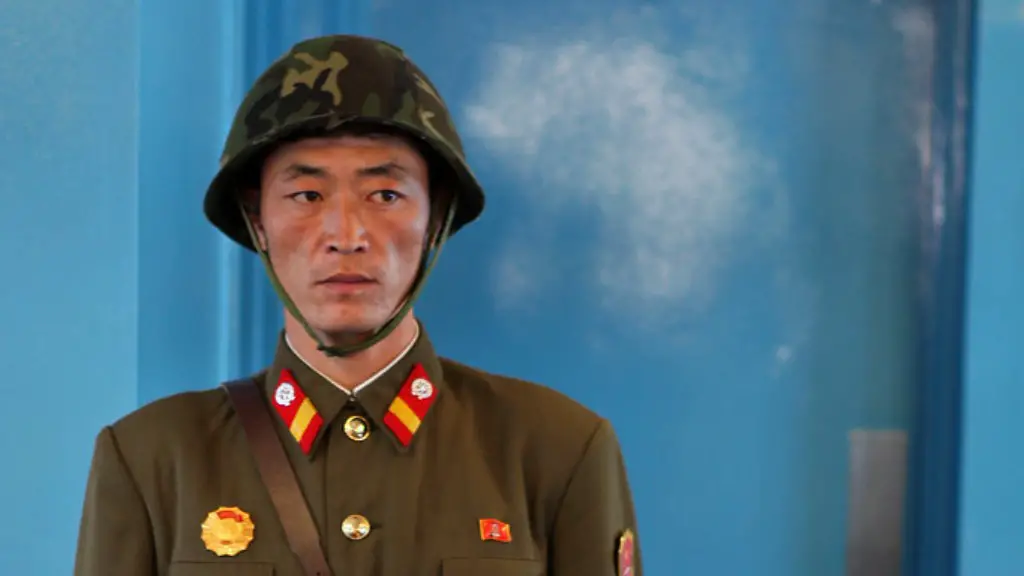Food insecurity is a major problem facing North Korea and has become even worse over the last decade. According to the UN’s World Food Programme (WFP), more than 10 million people are estimated to be undernourished in the country and food aid is necessary in order to ensure the populations is getting the sustenance it needs. North Korea’s citizens have been facing food shortages since the 1990s, when its economy suffered a major blow due to the dissolution of the Soviet Union and resulting economic sanctions. The situation has only become worse in recent years, leading to the need for international aid.
In 2019, North Korea requested an appeal for international assistance from the WFP. This was granted, with the organization providing 155,000 metric tons of food aid, or nearly half of the country’s total food aid needs, that year. The aid was used to provide nutrition for about 7 million people in the country, who were struggling to survive. This support was continued in 2020, when the WFP provided a total of 194,000 metric tons of food aid. However, despite this assistance, the WFP estimates that 4.1 million people in North Korea still remain food insecure.
One of the main factors contributing to North Korea’s food insecurity is its lack of access to the international market. Sanctions, combined with a lack of foreign investment, have resulted in an economy unable to produce enough food to sustain its populace. This has left many people living in rural areas without access to food, with many having to resort to extreme measures just to feed themselves and their families. The situation in Pyongyang, the country’s capital city, is slightly better, as the government has been able to provide some rations, though these are still inadequate.
To make matters worse, North Korea is also facing a number of environmental challenges. The country has been affected by droughts and flooding in recent years, which have adversely impacted its agricultural sector. This has contributed to the food insecurity, as farmers have been unable to harvest enough crops to meet domestic needs. North Korea also suffers from soil erosion, which further limits the ability of farmers to produce food.
Experts believe that in order for North Korea to become food secure, it needs an injection of foreign investment. This could come in the form of aid or investments in the country’s agricultural and economic sectors, which would help to generate jobs and increase production levels. However, international assistance is not enough on its own, as the government must also make political and economic reforms in order to ensure that the population is able to access food.
In order to help alleviate the situation in North Korea, the WFP has been working in partnership with the government and other international organizations. It has been providing both food aid and technical assistance to help improve agricultural production and distribution systems, as well as working on setting up safety nets to help families affected by food insecurity. The WFP is also helping to develop the country’s social services and infrastructure, which will further aid in reducing food insecurity.
Effects on North Korea’s Population
Food insecurity has had a devastating effect on North Korea’s population, with the lack of adequate nutrition having a serious impact on the health of its citizens. According to the World Health Organization, there has been an increase in malnutrition-related diseases in the country, particularly among young children. This is due to the fact that their diets are lacking in essential vitamins and minerals, leading to serious growth issues. Additionally, the lack of food has also had psychological impacts on people, with many suffering from anxiety and depression.
Even if North Korea is able to achieve food security, its population is likely to suffer long-term repercussions from the situation. Many of those affected by years of food insecurity may never fully recover, with poor nutrition having lasting impacts on physical and mental health. It is likely that North Korea’s health care infrastructure will come under increased strain if the situation does not improve.
International Aid and Sanctions
International aid has been crucial in helping North Korea to survive its current food crisis, with countries and organizations like the USA, South Korea, China, and the WFP providing much-needed assistance. However, the effectiveness of this assistance has been threatened by economic sanctions, which have made it harder for international organizations to get their aid into the country. This has put additional strain on international aid efforts, as it has become more difficult to deliver food to those who are in need.
Despite these challenges, international aid organizations have managed to make progress in providing assistance to North Korea. In 2019, the WFP and its partners provided 403,000 metric tons of food aid to the country, helping to meet the needs of approximately 7 million people. The WFP has also set up a number of programs to help those affected by food insecurity, such as helping to develop farm-to-market infrastructure, providing micro loans, and running livelihood projects.
International organizations have also been working to raise awareness about the situation in North Korea, and to increase the pressure on the government to make the necessary reforms and to improve access to food. Media campaigns, high-level advocacy, and protests have all been employed in order to shine a light on the situation and to show the world what is happening in the country.
The Role of the United Nations
The United Nations (UN) has played a significant role in responding to North Korea’s food crisis. In 2019, the UN Security Council voted to help ease the situation, by removing certain sanctions that were hindering the delivery of international aid. This has made it easier for organizations like the WFP to deliver food and other assistance to the country.
Additionally, the UN has been supporting the North Korean government in its efforts to improve the lives of its citizens. In 2020, it appointed a new Food and Agriculture Organization representative to Pyongyang, who is helping to support the government’s agricultural sector. This appointment has been seen as a sign of the UN’s commitment to helping the country and aiding in its transition to food security.
The UN has also been working to help build up North Korea’s vulnerable health and social care infrastructure. In 2020, the organization launched a new project, the Regional Food and Nutrition Security and Development Programme, with the aim of improving access to health and social services, as well as promoting human rights.
Role of South Korea
South Korea has been one of the main providers of international aid to North Korea. In 2018, the country pledged $8 million to the WFP in order to help meet the basic nutrition needs of 6.5 million people in the country. South Korea has also been providing aid directly to North Korea, with the country delivering food and other assistance to areas affected by floods in summer 2020.
South Korea is also working to support inter-Korean collaboration and improve relations between the two countries. In 2019, the two countries signed a historic peace agreement, which has opened up new possibilities for cooperation and aid. Under the agreement, the two countries have agreed to pursue joint economic development endeavors, which could help to improve North Korea’s economic prospects and reduce its dependence on aid.
The South Korean government is also supporting North Korean refugees in the country. Many North Koreans have fled to South Korea in recent years in search of a better life, and the South Korean government has been providing necessary assistance to these refugees. This includes providing access to education, health care, and social services.
Conclusion
North Korea is facing an entrenched food insecurity crisis, and its citizens are in dire need of assistance. International assistance and aid have been crucial in helping to alleviate this crisis, and organizations like the WFP have played a pivotal role in providing much-needed support. South Korea has also been a major player in helping North Koreans, both through providing aid and working to improve inter-Korean relations. Additionally, the UN has been working to support the North Korean government in its efforts to transition to food security. Going forward, it is essential that the international community continues to provide aid and assistance to the country in order to ensure the population is able to access the food and other sustenance it needs to survive.




